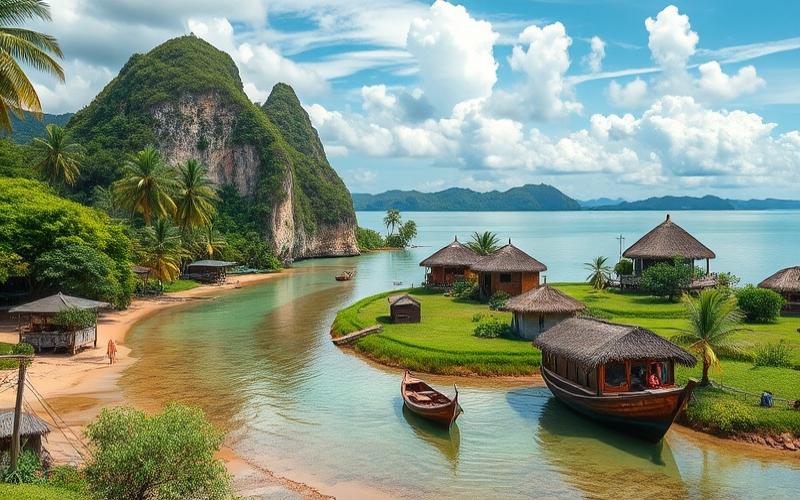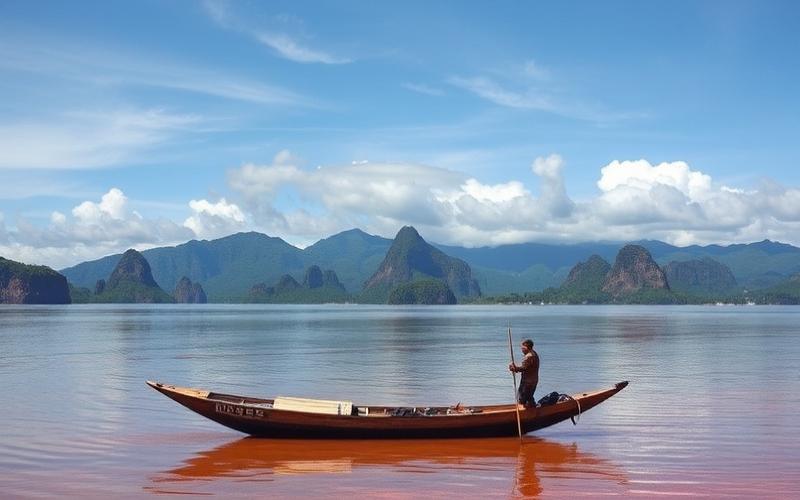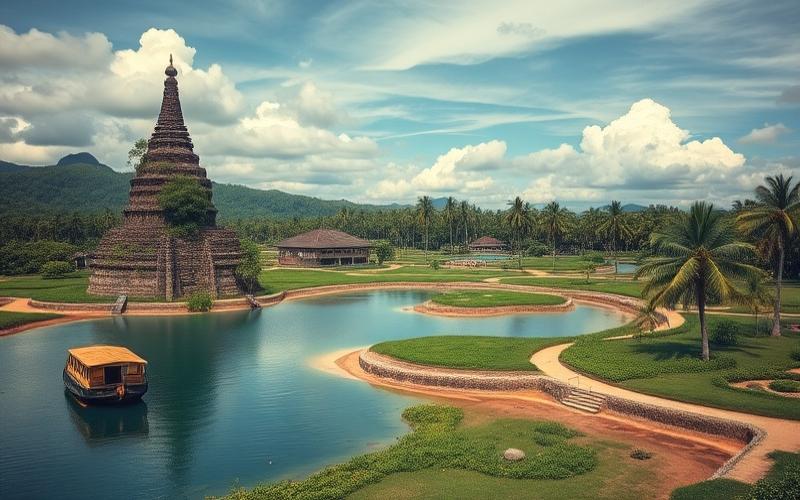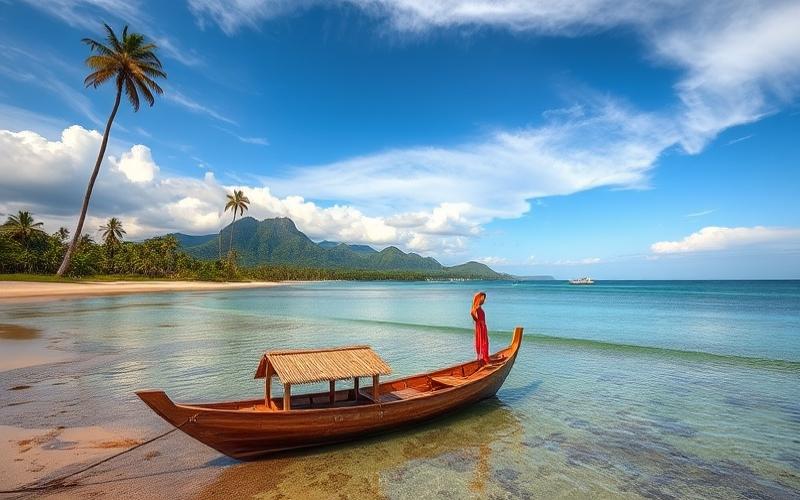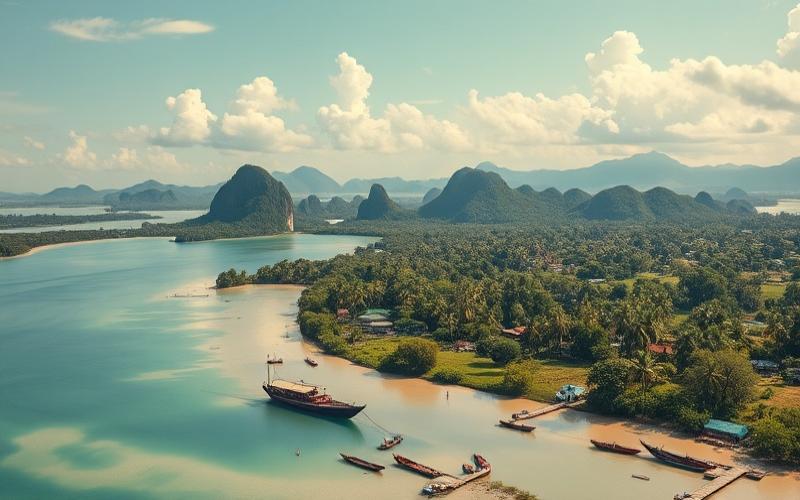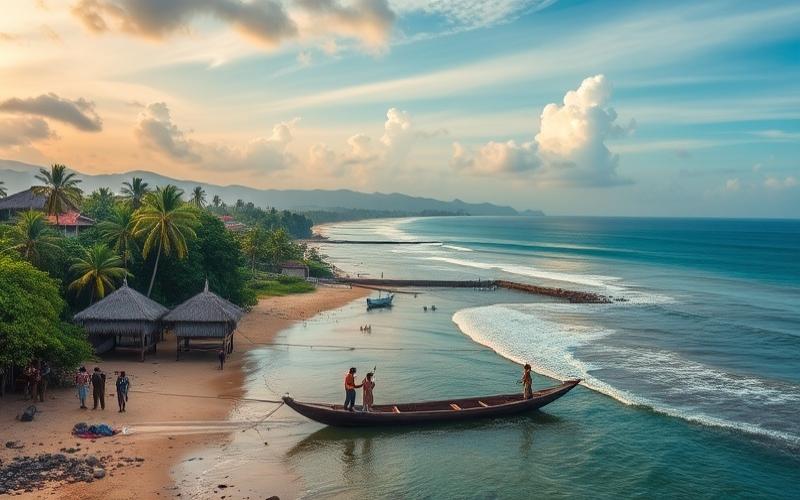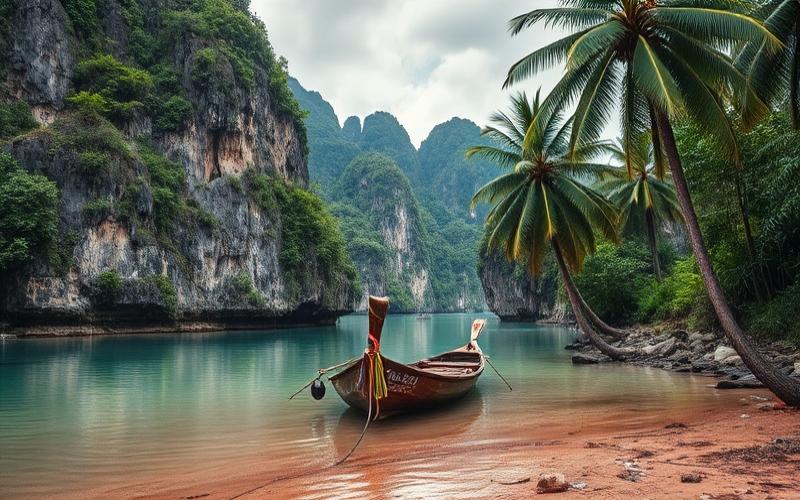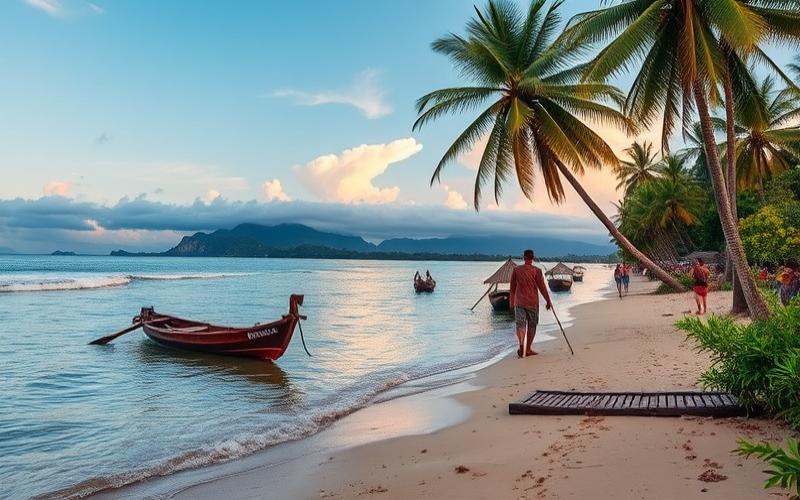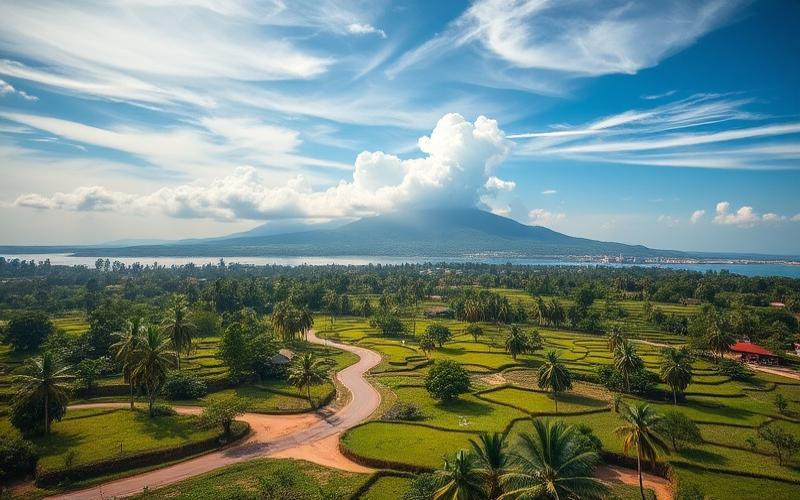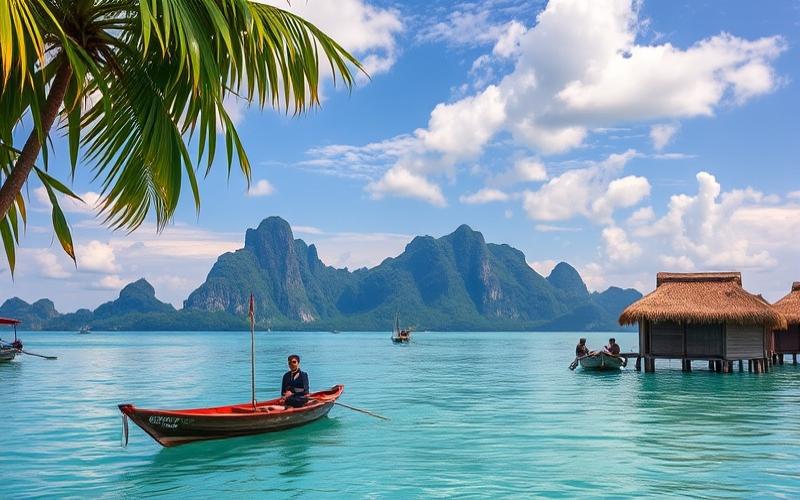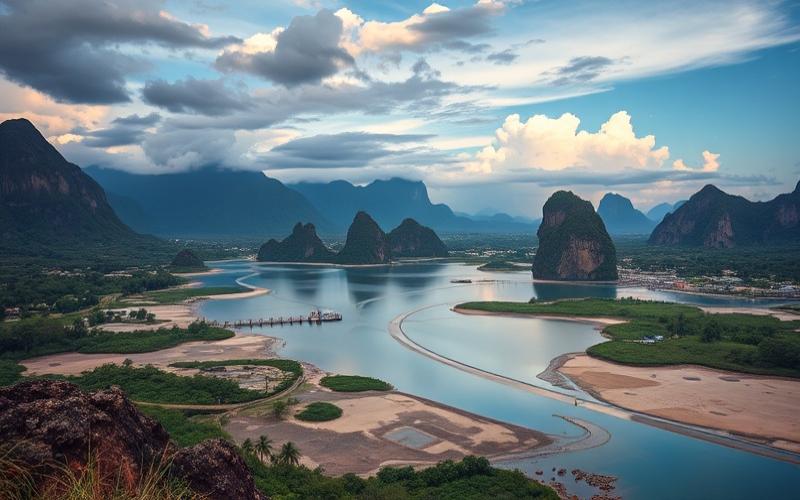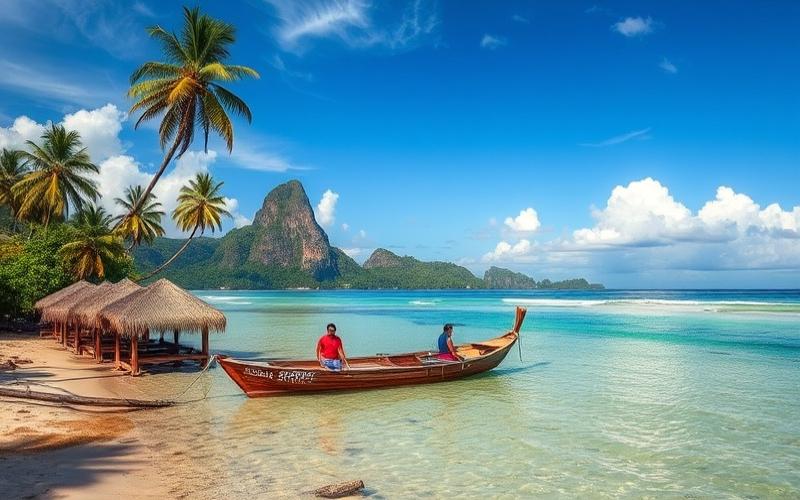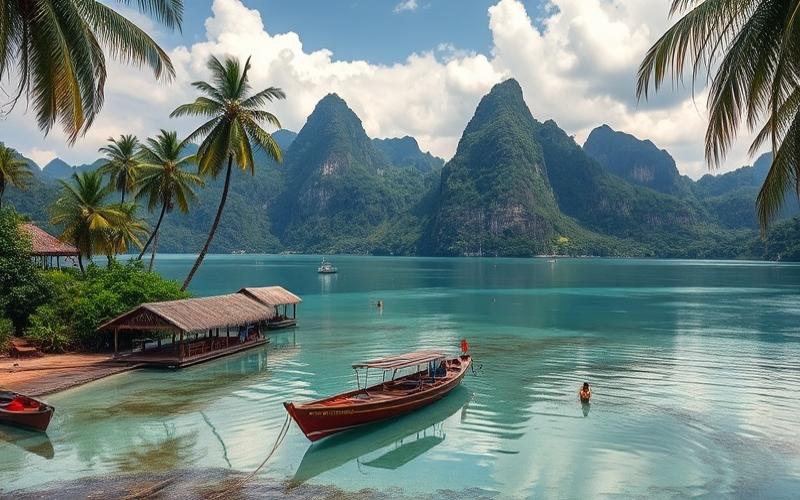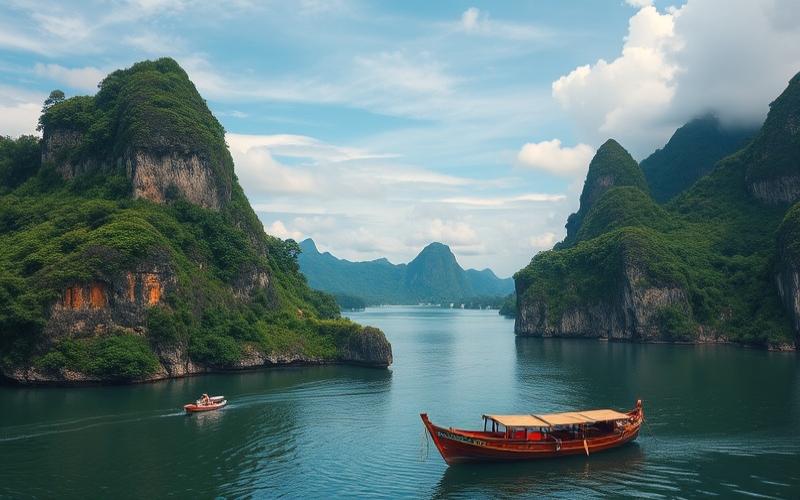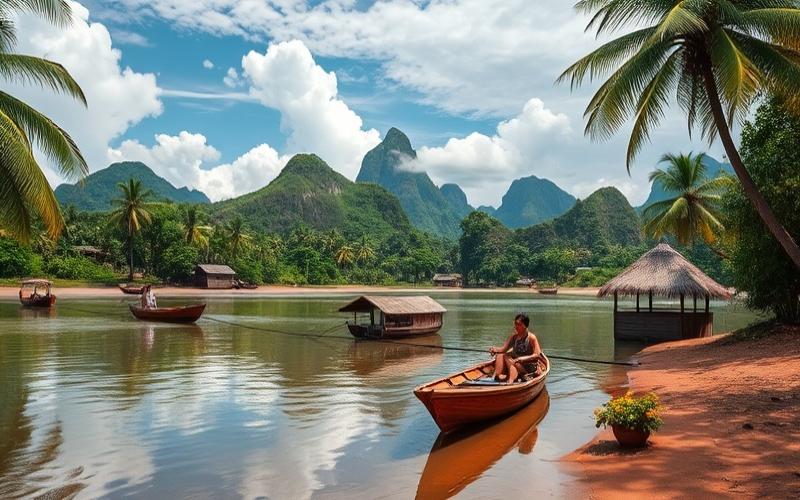
 Published on and written by Cyril Jarnias
Published on and written by Cyril Jarnias
Relocating to Malaysia offers a unique experience, but adapting to the tropical climate can be challenging for many expatriates. This article will guide you through the specifics of Malaysian weather and provide practical tips to help you acclimate smoothly.
Understanding Malaysian Climate
Malaysia enjoys an equatorial climate, characterized by consistent heat and humidity throughout the year. Temperatures typically range between 73°F and 91°F, with minimal seasonal variations. This tropical climate features two main seasons:
The wet season: From November to March on the east coast, it brings heavy rainfall, particularly in Sabah and Sarawak regions.
The dry season: From May to September, it offers sunnier and less rainy weather, although showers remain frequent.
It’s important to note that the climate can vary by region. Coastal areas generally enjoy more sunshine and slightly milder temperatures than inland areas, where the heat can feel more oppressive.
Climate Impacts on Health and Well-being
Malaysia’s tropical climate can significantly impact expatriates’ health and well-being, particularly for those unaccustomed to these weather conditions.
Dehydration and heatstroke: Constant heat and humidity increase the risks of dehydration and heatstroke. It’s crucial to stay hydrated by drinking water regularly throughout the day.
Tropical diseases: The warm, humid climate promotes mosquito breeding, which can transmit diseases like dengue or malaria. Prevention involves using repellents and protecting your living space.
Fatigue and irritability: Adapting to constant heat can lead to increased fatigue and temporary irritability. It’s important to give your body the necessary time to acclimate.
Skin problems: High humidity can promote fungal infections or skin irritations. Rigorous hygiene and appropriate clothing are essential.
Daily Adaptation Strategies
To live comfortably in Malaysia, it’s necessary to adapt your daily habits to the local climate. Here are some practical tips:
Adopt the local rhythm: Malaysians tend to start their day early to enjoy the morning coolness. Try adopting this rhythm to better manage the heat.
Adapt your diet: Prioritize light meals rich in local fruits and vegetables. Contrary to popular belief, spicy dishes can help you better tolerate the heat by promoting sweating.
Constant hydration: Drink water regularly throughout the day. Local beverages like coconut water are excellent for rehydration and providing essential minerals.
Clothing choices: Opt for loose-fitting clothes made from natural materials like cotton or linen. Light colors reflect heat better. Don’t forget to protect yourself from the sun with a wide-brimmed hat and sunglasses.
Good to know:
Napping is common practice in Malaysia, particularly during the hottest hours of the day. Don’t hesitate to adopt this habit to better recover and manage heat-related fatigue.
Adapting Your Home for Climate Comfort
Your home plays a crucial role in adapting to the Malaysian climate. Here’s how to optimize it:
Location choice: If possible, choose housing on higher floors to benefit from better natural ventilation. Avoid low-lying areas, which are more prone to flooding during the rainy season.
Optimal ventilation: Prefer homes with large openings to promote air circulation. Installing ceiling fans in every room is a wise investment to improve your daily comfort.
Sun protection: Equip your windows with thick curtains or blinds to block heat during the hottest hours. External awnings can also help keep your interior cooler.
Reasonable air conditioning: If you opt for air conditioning, choose energy-efficient models and set them to a reasonable temperature (around 79°F) to avoid thermal shock.
Dehumidifier: Using a dehumidifier can greatly improve your comfort by reducing ambient humidity, particularly during the rainy season.
Good to know:
Traditional Malaysian architecture, with its high roofs and natural materials, is perfectly adapted to the local climate. Don’t hesitate to draw inspiration from it for your home arrangement.
Essential Equipment for Facing Malaysian Climate
To live comfortably in Malaysia, certain equipment is essential:
- Umbrella or light raincoat for sudden showers
- High SPF sunscreen
- Effective mosquito repellent
- Light, breathable clothing in natural fibers
- Wide-brimmed hat and sunglasses
- Insulated water bottle to keep water cool
- Portable fan for outings
Preventing Climate-Related Illnesses
Malaysia’s tropical climate can promote certain diseases. Here are some prevention tips:
Vaccination: Ensure your vaccinations are up to date, particularly against hepatitis A and B, typhoid fever, and Japanese encephalitis.
Mosquito protection: Use impregnated mosquito nets, wear covering clothing in the evening, and use effective repellents.
Food hygiene: Be vigilant about the source of your drinking water and thoroughly wash fruits and vegetables.
Medical follow-up: Have regular health check-ups and consult quickly if unusual symptoms appear.
Good to know:
Dengue is endemic in Malaysia. Be particularly vigilant during the rainy season when cases are more numerous.
Adapting to Malaysian Seasons
Although seasonal variations are less marked than in Europe, it’s important to adapt to the subtleties of Malaysian climate:
Rainy season (November to March on the east coast): – Plan indoor activities – Equip yourself with a good raincoat and appropriate shoes – Be vigilant about flood risks in certain areas
Dry season (May to September): – Take advantage to explore national parks and beaches – Strengthen your sun protection – Stay hydrated constantly
Dry haze periods (generally June to October): – Follow local authorities’ recommendations – Limit outdoor activities if air quality is poor – Consider using an air purifier at home
Managing Climate-Related Stress
Adapting to a new climate can be stressful. Here are some strategies to manage it:
Practice relaxation: Yoga or meditation can help you better manage heat-related stress.
Maintain a routine: Establish a daily routine adapted to the local climate to create a sense of normalcy.
Stay connected: Keep in touch with loved ones to share your experience and get support.
Join expatriate groups: Exchange with other people experiencing the same situation as you.
Good to know:
Climate adaptation can take several weeks, even months. Be patient with yourself and allow the necessary time to acclimate.
Conclusion
Adapting to Malaysia’s tropical climate requires time and patience, but with the right strategies, it’s entirely possible to live comfortably in this fascinating country. By taking care of your health, adapting your lifestyle, and wisely arranging your home, you’ll be able to fully enjoy your expatriation in Malaysia.
Remember that each individual reacts differently to climate change. Listen to your body, be attentive to your needs, and don’t hesitate to consult a healthcare professional if necessary. Over time, you’ll discover that Malaysia’s tropical climate also offers many advantages, like the possibility to enjoy outdoor activities year-round and savor an incredible diversity of tropical fruits.
Disclaimer: The information provided on this website is for informational purposes only and does not constitute financial, legal, or professional advice. We encourage you to consult qualified experts before making any investment, real estate, or expatriation decisions. Although we strive to maintain up-to-date and accurate information, we do not guarantee the completeness, accuracy, or timeliness of the proposed content. As investment and expatriation involve risks, we disclaim any liability for potential losses or damages arising from the use of this site. Your use of this site confirms your acceptance of these terms and your understanding of the associated risks.

